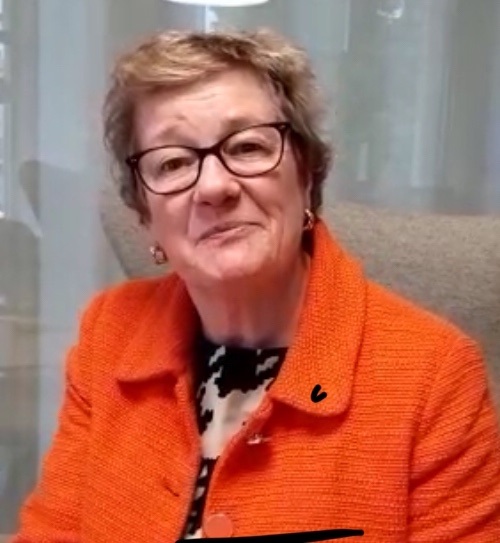The Mission hosted a sequel webinar on post-COVID-19 recovery
After a very successful kick-start to the discussion on post-COVID-19 recovery in May, the Permanent Mission of Finland to Geneva organized a second webinar on the topic on Tuesday, June 9th 2020. With over 100 registered participants, the event focused on the nexus between trade policy and finance policy and how aligning the two would contribute to sustainable recovery after the crisis. While the acute crisis caused by the coronavirus is still ongoing, countries are gradually starting to plan their exit strategies. The recovery planning is tied to the questions on how to finance the recovery and how to direct the stimulus packages to benefit the society in the best possible way.
Trade is one of the key contributors to recovery: it plays an essential role in economic development and is an engine for achieving the sustainable development goals (SDGs). The investments made now to boost post-COVID recovery will determine the direction of the economies for decades to come. Sustainable recovery measures could provide opportunities for both trade and environment by boosting sustainable trade and transition to a low-carbon Circular Economy while supporting achievement of the SDGs and tackling climate change. Trade and finance policy-related measures could help to direct private and company investments towards sustainable options.
The webinar aimed at shedding light on how trade policy could support the financial and investment-linked recovery measures, and how the decisions regarding the stimulus measures could affect the future of trade. The connection between trade, investments and finance policy, however, is widely underdiscussed in the trade space. The discussion is especially important now when the significant decisions on the recovery measures are being made.
The distinguished speakers of the event included Mr. Sean Doherty, Head of International Trade and Investments at the World Economic Forum (WEF); Ms. Saara Tamminen, Leading Specialist at the Finnish Innovation Fund Sitra; Mr. Brian O’Callaghan, Researcher at the Smith School of the Enterprise and the Environment (SSEE) of the Oxford University and Mr. Patrick Schröder, Senior Research Fellow at the Chatham House. The event was moderated by Ms. Malena Sell, Senior Specialist at the Finnish Innovation Fund of Sitra.
In his opening remarks, Deputy Permanent Representative Mr. Kari Puurunen (Finland) stated that finance policy decisions have a long-lasting impact on the recovery through investments which aim at rebuilding the economy. Investments and trade are the different sides of the same coin, therefore in the current situation it is especially important to discuss how trade policy could support the financial and investment-linked recovery measures, how the decisions regarding the stimulus measures could affect the future in the long term, how sustainable recovery could advance the transition to Circular Economy and how aligning finance and trade policy could support this transition.

On behalf of Minister for Development Cooperation and Foreign Trade Mr. Ville Skinnari, Under-Secretary of State (External Economic Relations) Ms. Nina Vaskunlahti (pictured) presented setting the scene-remarks via video message. Ms. Vaskunlahti shared Finnish experiences and vision on rebuilding the economy. Ms. Vaskunlahti introduced, among others, the recommendation of a recovery roadmap: The experts advising the government found that a long-term recovery strategy can contribute to Finland’s objectives of building a socially, economically and ecologically sustainable society. The government has already decided that recovery investments and stimulus measures will estimated according to a sustainable recovery criteria, which include impacts on the employment, the economy, climate, biodiversity, competitiveness and the transition to circular economy.
Under-Secretary of State Vaskunlahti highlighted the opportunities to rebuild the economies in a sustainable, future-oriented way and the importance to take into account the mounting impacts and economic consequences of climate change in finance policy. Ms. Vaskunlahti also stressed that the opportunities of climate action could unlock up to 26 trillion dollars globally in investments and create 65 million more jobs through 2060. Circular economy is in the core of Finland’s economic and competitiveness policy and Finland has been actively advancing discussions on Circular Economy and trade here at the WTO. Ms. Vaskunlahti stated that the crisis provides us a chance to shift gears in the just, fair and inclusive transition to Circular Eonomy. Ms. Vaskunlahti also highlighted the importance of global cooperation and predictable, rule-based trade policies in getting the economies back up, preferrably even stronger and more sustainable than before.
Mr. Sean Doherty (WEF) discussed the linkages between trade and investments and aligning trade policy and finance policy priorities could support the recovery. Mr. Doherty elaborated on a wide range issues from digitalization to subsidies, government procurement, taxation and trade facilitation.
Ms. Saara Tamminen shared her views on the between trade and finance policy and presented the work done by the Finance Ministers’ Coalition for Climate Action, e.g. how the Helsinki principles could be applied to recovery policy, how green financing and investments and trade policy complement each other and how trade policy supports the recovery.
Mr. Brian O’Callaghan (SSEE) presented the recent SSEE working paper(Link to another website.) “Will COVID-19 fiscal recovery packages accelerate or retard progress on climate change?” with an introduction to sustainable recovery, why and how governments should design stimulus packages in a way that they help tackle climate change and what kind of stimulus policies would deliver large economic multipliers and support transition to low-carbon economy. Mr. O’Callaghan also presented examples of decisions governments have already taken to move towards green recovery. He also stressed the importance of resilient supply chains, reducing trade barriers and promoting transparency to enable clean procurement criteria.

Dr. Patrick Schröder (Chatham House, pictured) provided an outlook on the benefits of Circular Economy, the opportunities Circular Economy creates for the recovery, the implications for global trade, the importance of multilateral approach and international cooperation, in the special emphasis on the ways post-COVID-19 recovery could accelerate transition to Circular Economy. Dr. Schröder also introduced his recent article(Link to another website.) on the topic.
The interactive discussion with the participants spanned over a wide range of issues, e.g. using the stimulus measures for re-training of labor to ways trade policy and finance policy could be aligned, the development aspects and the challenges faced in particular by the transition economies, the possibilities to re-start the EGA plurilateral negotiations to complement stimulus measures to green sectors and the various ways cooperation (such as the Finance Ministers’ Coalition for Climate Action) could facilitate green recovery measures.
Presentations of the speakers:
Mr. Sean Doherty: Recovery 2.0
Ms. Saara Tamminen: Coalition of Finance Ministers for Climate Action
Mr. Brian O’Callaghan: We can win on both economics and climate. The role of world trade in shaping COVID-19 fiscal recovery pathways
Dr. Patrick Schröder: Circular Economy

